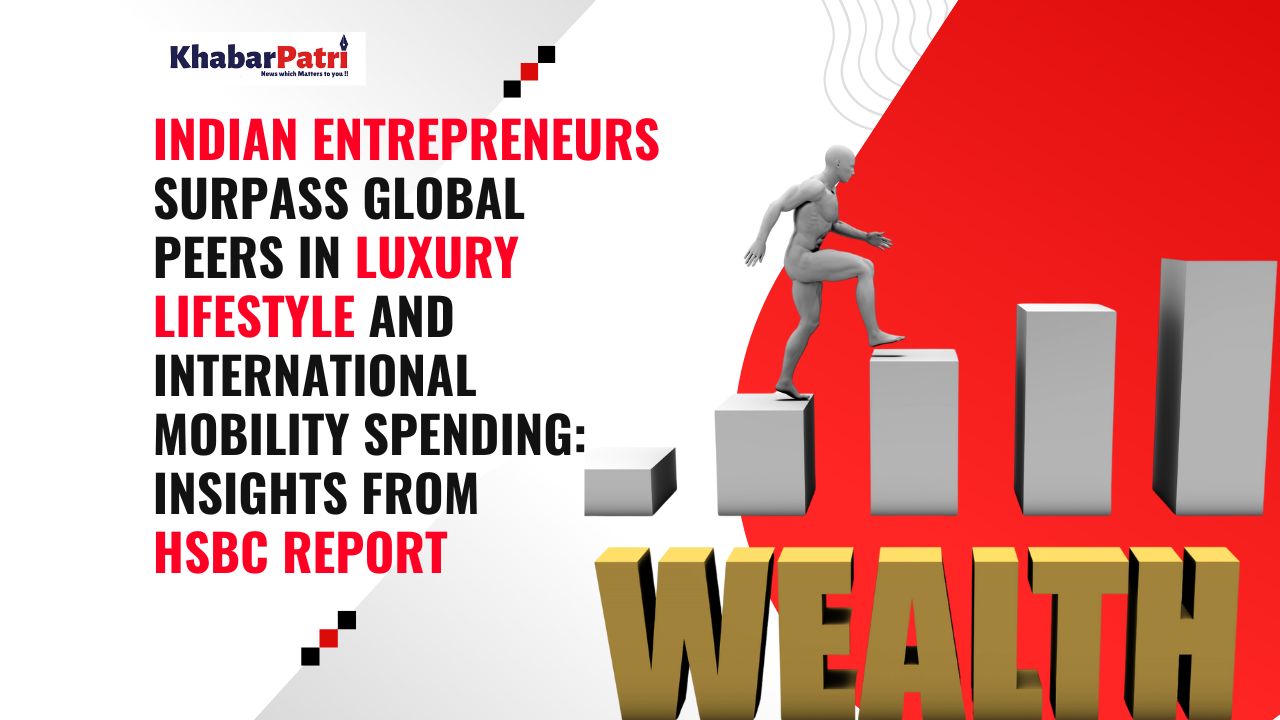Approximately 64 percent of entrepreneurs in India invest in real estate for personal use, while 61 percent allocate funds toward health and wellness or longevity. In comparison, the global averages stand at 53 percent and 50 percent, respectively.
- Nearly six out of ten (59 per cent) allocate personal wealth for luxury experiences compared to one in two globally (50 per cent).
- Entrepreneurs in India are overwhelmingly positive about their personal wealth outlook, with 95 per cent expressing optimism.
- Entrepreneurs in India are increasingly embracing global mobility, with 73 per cent holding multi-residency status—significantly higher than the global average of 56 per cent.
Wealthy entrepreneurs in India are investing their riches in a luxurious lifestyle, fueled by their optimism and global perspective, which allows them to broaden their horizons internationally, as highlighted by research from HSBC Private Bank. The HSBC Global Entrepreneurial Wealth Report 2025 indicates that entrepreneurs in India allocate significantly more resources toward personal real estate (64 percent), health and wellness (61 percent), and luxury experiences (59 percent) compared to their global peers.
The report indicates that entrepreneurs in India have an overwhelmingly positive outlook on their personal wealth, with 95 percent anticipating growth in the coming years. Among these optimistic individuals, 56 percent expect significant increases, while 39 percent foresee moderate growth. This sense of optimism is especially strong in markets such as the UK, UAE, India, and Singapore. The key factors driving this sentiment in India include:
- Opportunities for new investments and ventures: 64 percent
- Positive performance of investment portfolios: 56 percent
- Favourable economic outlook for the local economy: 54 percent
- Positive business performance: 43 percent
When assessing the business outlook, Indian entrepreneurs display remarkable confidence, with 98% expressing a positive sentiment. They believe that technological innovations and emerging business opportunities will be crucial factors for growth.
Global mobility : Entrepreneurs in India have a particularly global outlook, with 73 per cent holding multi-residency status—significantly higher than the global average of 56 per cent. The vast majority are open to relocating abroad, with the UK and US emerging as the top destinations, followed by Switzerland, UAE, and Singapore.
Among those entrepreneurs looking to make a personal move, the primary motivations for cross border movements include better quality of life for themselves and their families (78%); access to new investment opportunities (75 per cent); and expansion of business into new markets (71 per cent). The UK is the most popular destination for Indian entrepreneurs looking to move wealth, followed by Singapore, the US, Switzerland, and the UAE.
Investment portfolio : The report shows how wealthy entrepreneurs in India have diverse investment portfolios, with a strong focus on life insurance (73 per cent); property investments, including commercial real estate (58 per cent); publicly-traded stocks (53 per cent) and private assets (51 per cent). Additionally, 42 per cent of respondents prioritize charitable donations, reflecting a commitment to giving back to society.
Challenges in mobility : Despite their optimism, Indian entrepreneurs face challenges in managing their global operations and wealth. Key concerns include complexities in managing existing business operations from abroad (50 per cent); visa and residency requirements (49 per cent); and challenges in purchasing property in new locations (48 per cent). Succession planning also remains a critical area, with 64 per cent expressing concerns about structuring business transfers effectively.
Commenting on the research findings, Sandeep Batra, Head of International Wealth and Premier Banking, HSBC India, said, “Indian entrepreneurs are redefining the global playbook with their optimism, ambition, and growth mindset. Their investments in luxury lifestyles, global mobility, and diversified portfolios signal not just confidence in their wealth trajectory but also their readiness to capitalize on the next wave of global opportunities and deepening international wealth corridors as globalisation enters a new phase.”

